Pat Bertram's Blog, page 300
February 27, 2011
I Am an Eleven-Month Grief Survivor
 Eleven months ago, my life mate — my soul mate — died of inoperable kidney cancer. He took a final breath, his Adam's apple bobbed twice, and then he was gone. It was a silent night — no storm lashing out in anger, no rain falling like tears, just the quiet passing of a quiet man. Nothing remained of him at the end but skin stretched around a skeleton without enough weight to make a dent in the bed, yet he left behind a hole in my life and my heart that will never be filled.
Eleven months ago, my life mate — my soul mate — died of inoperable kidney cancer. He took a final breath, his Adam's apple bobbed twice, and then he was gone. It was a silent night — no storm lashing out in anger, no rain falling like tears, just the quiet passing of a quiet man. Nothing remained of him at the end but skin stretched around a skeleton without enough weight to make a dent in the bed, yet he left behind a hole in my life and my heart that will never be filled.
We'd been together thirty-four years. In comparison, eleven months seems like a mere blip in time, yet those few months contain an eon of sorrow and pain. He'd been dying for so long that I was glad when his suffering ended. Because of it, I truly did not expect to grieve, and I didn't at first. I just sat in the room with his body and waited for the funeral director. The people at the hospice care center wanted me to finish the night there, but I couldn't stay, so after they removed his body (not in a body bag but covered with a red plush blanket — he would have liked that), I headed back to the house. (You notice I don't say I headed back home? He was my home. The house was just a house.)
I'm not sure when the grief hit me, but when it did, it slammed into me with such force I have not yet recovered my balance. It wasn't a single body slam — the grief continued to grow for many weeks, until it all but consumed me. It didn't consume me, of course. I managed to do all the terrible tasks of death: the grim paperwork, the final bills, the disposition of his effects. I've even managed to get on with my life. I've made friends. I've gone to museums. I take care of myself (most of the time, anyway. I still don't always eat right, don't always exercise, though I do walk for miles almost every day.)
On meeting me, you'd never know of my sorrow. I laugh, talk, joke, act like a normal person. And I am normal. Grief is now part of my normalcy. Every Friday night and Saturday, it descends on me. (Though upsurges of grief can occur any time without warning.) I cannot go to sleep on Friday nights until after 1:40 am, the hour of his death. Even if I don't remember, my body does. And then, there is my time of the month — the date of his death. The 27th.
Yesterday I got an email from my sister: Can I tell you something I just love about you? I love your sense of irony, your talent for observation of seemingly insignificant details, and your almost-spiritual gift for connecting dots across time and distance. I thanked her, telling her I so needed to hear something nice, and she responded: Well, considering it's Saturday, and considering the time of month, you just can't hear enough nice things today, that's what I'm thinking.
My time of the month. That used to mean something completely different, but now it means only this: I survived another twenty-eight or thirty or thirty-one days without him.
Tagged: death, grief, kidney cancer, loss, loss of a soulmate, loss of mate, soulmate, surviving grief








February 23, 2011
Surprised by Grief
 I continue to be surprised by the intensity and depth and variability of grief. It's been more than ten months since my life mate — my soul mate – died. Most days now I feel normal, but "normal" for me is his being safe at home, perhaps in the other room, perhaps outside shoveling snow or watering our trees. The renewed realization that he is gone from this life still brings me raw pain. I'm getting used to being alone — in some ways, that aloneness feels normal, too. Until I met him, I'd always expected to be alone, and so part of me is looping back to that earlier life when I had only my concerns to worry about.
I continue to be surprised by the intensity and depth and variability of grief. It's been more than ten months since my life mate — my soul mate – died. Most days now I feel normal, but "normal" for me is his being safe at home, perhaps in the other room, perhaps outside shoveling snow or watering our trees. The renewed realization that he is gone from this life still brings me raw pain. I'm getting used to being alone — in some ways, that aloneness feels normal, too. Until I met him, I'd always expected to be alone, and so part of me is looping back to that earlier life when I had only my concerns to worry about.
Still, despite that normalcy, there are days when it feels as if he just left, as if he walked out on me (or I walked out on him) and it's a matter of time until we reconcile our differences. I don't know where such thoughts come from — we had no major differences. Well, except for the soul-shaking differences that came when our journeys diverged — his into death, mine into continued life.
I mentioned before that love and grief were the bookends of a relationship. Because of its intensity, the ability to change a person's life and outlook, and the all-consuming focus on another person, grief seems to mimic falling in love, though in a bleaker, blacker, lonelier way. And like love, grief stirs up your depths, making you realize you are more than you ever thought you could be. As I'm slowly beginning to define my life solely by me, not by "us", I'm seeing another similarity. When a couple embarks on a life together, they learn to depend on each other, to find ways to complement each other, to meld their likes and dislikes, their hopes and frustrations into a workable emotional environment for both parties. When half of a couple dies, the person left behind has to find a way to unmeld. To go from thinking about both of you, to thinking solely of yourself, to depending solely on yourself. It's hard and painful and feels futile at times. (Because, you think, if life is worth living, he would still be here.)
It's like a teeter-totter. When one person leaves abruptly, you crash to the ground. You do learn to play by yourself, but you are always aware that the other side is empty. Gradually, you get used to it, though — or at least resigned. And that's where I am, most of the time. Resigned.
I'm even getting resigned to that great yearning I once talked about, especially since it's nothing new. Looping back to the time before I met him, when I was young, I remember being consumed by yearning, though I never knew for what. I didn't feel it when we were together, but I feel it now. Could that yearning have been for him? Or could our being together have masked the earlier yearning? Just one of the many questions stirred up from the depths by grief.
Tagged: aloneness, death, death of a soulmate, defining one's life, end of a relationship, falling in love, grief, loss, Love and grief, relationship, yearning








February 20, 2011
She Said Sarcastically
While reading a book the other day, I came across this exchange:
"I'm back! Did you miss me?" she cooed in an almost childlike tone.
"Like the Sahara misses the rain," he said sarcastically, hand on heart.
It was supposed to be a flirtatious moment in an otherwise serious story, but the author completely lost me there. Not only did she destroy the flirtatious aspect of the comment with "sarcastically," the writing is atrocious. Cooing (if you have to use the word, which I do not recommend) presupposes "an almost childlike tone." And why modify "childlike tone" with almost? Why not have the courage to say childlike tone? Or why say anything? Why not have her give him a flirtatious look? Or have her smile? (It's been pointed out to me that I have my characters smiling at each other way too often, but at least they aren't cooing at each other.) Or leave "I'm back! Did you miss me?" plain and unadorned without a dialogue tag. We get the point.
As for sarcastically — well, for one, it adds nothing to the exchange. For another, it doesn't mean what the author seems to think it means. Sarcasm is a cutting, hostile, or contemptuous remark. The word originally came from the Greek word sarkazein, which means tearing flesh, biting the lips in rage, sneering. Very flirtatious! (She said sarcastically.)
The secondary definition of sarcasm is "the use of a caustic or ironic remark," but sarcasm connotes contempt even when used ironically. If she meant ironic, she should have said ironic, though ironically, irony is not exactly what she wanted, either. Irony is the use of words to express something other than (usually the opposite of) the literal meaning. The character in the exchange above might be exaggerating what he meant, but he had missed her, so he didn't say the words ironically, either.
He could have said the words sardonically, but sardonic means bitter and mocking. Perhaps he could have said his words wryly, facetiously, flirtatiously or expansively, but why use any adverb? The melodramatic gesture of the hand to the heart showed exactly what he meant to say, that yes, he did miss her but that his words were overblown.
One of the rules for writing is to cut down on ly adverbs. Now you know why. People like me get caught up in the foolishness of the word and forget to read the rest of the book.
Tagged: dialogue tag, ironic, ly adverbs, proper usage of words, sarcastic, sarcastically, sardonic








February 18, 2011
Excerpt from Light Bringer — Ghost Town and Ghost Cat
 No wonder Becka felt tired—it was still night. She was about to climb back into bed when she remembered what Luke had said about the setting moon illuminating the outlines of the houses where the white tribe had lived. Afraid of missing the phenomenon, she didn't even take time to snatch a robe to throw over the long T-shirt she wore, but dashed to the front door, yanked it open, and stepped out onto the porch.
No wonder Becka felt tired—it was still night. She was about to climb back into bed when she remembered what Luke had said about the setting moon illuminating the outlines of the houses where the white tribe had lived. Afraid of missing the phenomenon, she didn't even take time to snatch a robe to throw over the long T-shirt she wore, but dashed to the front door, yanked it open, and stepped out onto the porch.
Mouth hanging open, she stared at the town. By outlines, she'd thought Luke meant a faint tracing on the ground where the foundations had been, but this . . . this was a complete village, each exquisite stone house solidly visible. Though the stones weren't uniform, they fit together snugly, like a miniature version of the megalithic ruins she'd seen in pictures of Cuzco. The roofs seemed to be made of rough wooden shingles, and the windows were covered with what appeared to be mats woven of dried grasses.
Seeing the door of the nearest house open a crack, she froze.
The door opened wider, and a sleek, hairless white cat with outsize ears and large slanted eyes sneaked outside. It looked around as though proud of its accomplishment, then sat back on its haunches and washed its face.
A ghost cat?
Becka felt a giggle percolate to her throat. She tried to swallow her amusement, but a tiny gurgle escaped.
The cat swiveled its head in her direction and focused its luminescent eyes on her.
She gazed at the hairless creature, unable to look away. What is it they say about staring too long into the abyss? Make sure it isn't staring back at you?
She shivered, but still couldn't avert her eyes.
Suddenly, with one liquid motion, the cat sprang to its feet and streaked toward her.
Light Bringer by Pat Bertram will be released in the spring of 2011 by Second Wind Publishing, LLC.
Tagged: ghost cat, Light Bringer, Pat Bertram, Second Wind Publishing








February 17, 2011
Introducing the authors of Second Wind Publishing
1. What is writing like for you?
2. What is the most thrilling thing about getting published?
3. What is the most humbling thing about getting published?
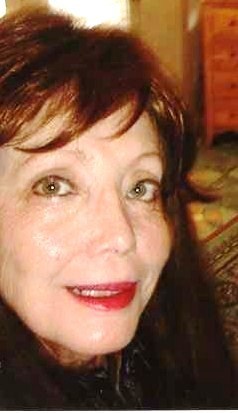 Nancy A. Niles, author of Vendetta:
Nancy A. Niles, author of Vendetta:1. Writing is something that I can’t not do. It’s my best friend, sometimes a pain in the neck, but most times just something that I need to do for my own peace of mind.
2. The most thrilling thing about getting published is the encouragement it has given me to keep writing and keep allowing myself to express more freely and deeper. I think all those rejection slips had an effect on me and now being published is having a strengthening and very positive effect on my writing.
3. The most humbling thing about getting published is knowing that for a few hours the people who read my novel will be taken away from their problems and be in my world. It humbles me to know that for just a short time I can give them a little escape from their troubles. It is quite a blessing.
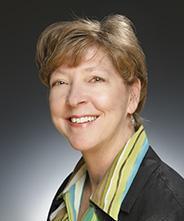 Laura S. Wharton, author of The Pirate's Bastard:
Laura S. Wharton, author of The Pirate's Bastard:1. Writing is like exercise. Sometimes, it’s really hard to get up at 4:00 in the morning to begin writing...the warm covers are oh so snuggly. Other times, the adrenalin rush about an aspect of the story-in-process surging through me has me up at 3:00, sitting still for three hours, and then reluctantly stopping so I can prepare myself and family for the work/school day ahead. Like exercise, it has to be done nearly every day to accomplish anything close to completion.
2. The most thrilling thing about getting published is reading reviews from unknown readers – and seeing that they really loved my story.
3. The most humbling thing about getting published is seeing typos after publication of what I thought was an error-free book.
 Nichole R. Bennett, author of Ghost Mountain:
Nichole R. Bennett, author of Ghost Mountain:1. Writing is in my blood. I don't mean that I come from a long line of authors, because I don't. But I have to write. I have to get those words out of my body and onto paper. Some days those words flow and there is no stopping them. Other days I struggle over each and every letter. Either way, writing is something I have to do. Just like eating or breathing.
 J. Conrad Guest, author of Backstop: A Baseball Love Story in Nine Innings and One Hot January:
J. Conrad Guest, author of Backstop: A Baseball Love Story in Nine Innings and One Hot January:
1. I haven’t found anything that provides the level of satisfaction writing provides me—the highs of crafting a perfect sentence, of self-discovery and exploring the universal themes of love and loss, dying and death, salvation, redemption, and keeping my parents alive and making them proud.
2. As writers, I think we all believe our work is the greatest since Hemingway, and seeing our work in print is affirmation, a thrill, that our work has merit—even if it isn’t really as good as Hemingway.
3. I find nothing humbling about getting published (I write with publication in mind), save for the process. By the time I receive my first proof copy, I’ve gone over my manuscript a dozen times or more and have probably a half-dozen drafts. An editor has gone over it, found several typos I’ve missed, and made suggestions for changes—some with which I agree, but most I discard. So I find it maddening and, yes, humbling, when I start reading my proof copy and find ways to improve the narrative, to rewrite a passage and, worst of all, I find a typo! I’m a perfectionist, so, yes, it’s humbling to learn I still can improve upon the process. 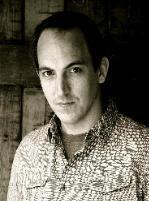 Eric Beetner, co-author of One Too Many Blows to the Head and Borrowed Trouble
Eric Beetner, co-author of One Too Many Blows to the Head and Borrowed Trouble
1. Writing is lonely and tiring. Even writing as a part of a team like I do with Jennifer is still lonesome. We live on opposite coasts and only communicate through email. I never show anything to anyone for critique. Never let early drafts out to the public. So having her around is also an act of real trust. We show each other our naked first drafts and still expect that we'll respect each other in the morning.
2. I find that it is too easy to only hear from a friendly audience of family and friends so the biggest thrill for me is when a total stranger says or writes something good about my writing. I know it is genuine. Being published lets that person have exposure to my work and find something in it that resonates or entertains. That's why we're here, right?
3. Oh, brother, what hasn't been? I've had signings at book stores I respect (and where I shop) I've been in panel discussions alongside authors I admire. I've met writers as an equal – a fellow published author, not just a fan. All that has made me feel grateful beyond words.  Lazarus Barnhill, author of The Medicine People and Lacey Took a Holiday:
Lazarus Barnhill, author of The Medicine People and Lacey Took a Holiday:
1. A few years ago I came back to writing fiction after a self-imposed twelve-year period during which I did not write, and found about twenty ideas of books rattling around in my head. My first official act was to get a notebook and list the novels, outlining them to the degree they had “marinated” in my imagination. For me, writing is getting out of the way and allowing those stories that germinated so long ago to take root, flower and bear fruit.
2. The thrill comes from somebody you don’t personally know buying a book, or seeking you out intentionally at a book signing. It’s also thrilling when someone asks you a question about your story in such a way that you know they have read it with comprehension.
3. A couple things strike me right away. First is the praise I often get from my colleagues. When another writer whose work I admire compliments my work in a way that reveals I’ve accomplished precisely what I set out to do in the story—that is humble. The second thing is when people I know hunt me down and pester me until I get them a copy of one of my books. And sign it to them personally. I’m not accustomed to adulation. Lucy Balch, author of Love Trumps Logic:
Lucy Balch, author of Love Trumps Logic:
1. Writing is like I’m in a time machine. I can work for hours on a story and it always feels like much less time.
2. The most thrilling thing about getting published is the knowledge that, finally, I'll have something to show for the five years I've put into this obsession. Maybe I haven't been selfishly squandering huge amounts of time?!
3.The most humbling thing about getting published is the realization that so many good writers have not yet been given the opportunity to publish. Is my book worthy of the privilege? As an unpublished author, I can always tell myself that my book will be well received when given the chance. The reality might be different. I hope not, but it's a possibility, and once a book bombs there is no going back to the fantasy of it doing well.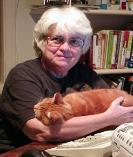 Juliet Waldron, author of Hand-Me-Down Bride:
Juliet Waldron, author of Hand-Me-Down Bride:
1. I write historicals, so writing for me is like entering a time portal—or, sometimes, like stepping out of Dr. Who’s callbox after accidentally pushing the wrong button. I have an idea of what may be there when I first look around, but I often find the world I’ve entered to be surprisingly different from my preconceptions.
2. The most thrilling thing about getting/being published is having someone you don’t know leave a message or write a review that totally “gets” the book. Shows I wasn’t as off-base as I sometimes—in those dark 3 a.m. moments—imagined.
3) The most humbling thing about getting/being published is that we have so much competition, and that there is a great deal of good writing out there. After publication there is the (IMO) far less agreeable marketing to do. The playful creation is now complete.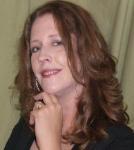 Claire Collins, author of Images of Betrayal and Fate and Destiny:
Claire Collins, author of Images of Betrayal and Fate and Destiny:
1. For me, writing is a journey. I don't always know the final destination until I start traveling, but it's always a rewarding trip.
2. The most thrilling thing about being published is when people read what I've written and they like it. I write for myself because writing is almost a compulsion for me. Readers enjoying my writing is a bonus.
3. The most humbling thing? All of the work it takes to get the books out and maintain a normal life while still trying to write. I realized pretty quick that I wasn't superwoman. I'm still trying, but someone keeps standing on my cape.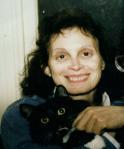 Mickey Hoffman, author of School of Lies:
Mickey Hoffman, author of School of Lies:
1. For me, writing is like being in that space just after you woke up from a dream but you only remember half of the dream and you spend all your waking moments trying to flesh it out.
2. I had some stories to tell and now I feel like they'll be heard. And it really is thrilling. I feel like I'm white water rafting and I don't need a boat!
3. I'll be awed that anyone would take the time to read what I've written when they could be doing something more valuable with their time. Deborah J Ledford, author of Staccato and Snare:
Deborah J Ledford, author of Staccato and Snare:
1. I am an entertainer. I don’t write for a cause or to pose my own thoughts or impressions on issues. My only function is to provide a suspense-filled, exciting ride the reader won’t want to stop until they reach the very last word.
2. The most thrilling thing about being published is seeing the words I’ve worked so diligently to craft actually in print. If what I present happens to be worthy enough for readers to tell others about Staccato, that’s all I could ask for.
3. Everything about being published is humbling to me. That readers would seek out Staccato, then take the time to escape from their lives for a while, makes me more grateful than anyone could possibly know. Sherrie Hansen Decker, author of Night and Day, Stormy Weather, and Water Lily:
Sherrie Hansen Decker, author of Night and Day, Stormy Weather, and Water Lily:
1. For me, writing is like a dream vacation - a chance to escape the realities of my everyday life and travel to some faraway world where I can see the sights and meet new people.
2. For years, I wrote and wrote, wondering if anyone would ever read my words. What a wonderful feeling to be writing for readers who are eagerly awaiting my next release!
3. Every time I think I have a perfect draft, I find more errors glaring out from the pages of my proof. Very humbling . . .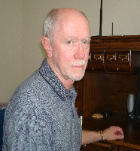 Norm Brown, author of The Carpet Ride:
Norm Brown, author of The Carpet Ride:
1. As a retired computer programmer, I see a lot of similarities between writing a novel and creating a complex software program. Both processes require an enormous attention to detail. All the little parts have to tie together in a logical way and a good flow is critical. And it's hard work to get all the "bugs" out of a book, too.
2. The most thrilling thing for me was pulling the first copy of my book out of the box and holding it in my hands. It was exciting to see something that I actually created.
3. The most humbling thing for me about being published was discovering how much I have to learn about promoting my book. I'm still learning. Jerrica Knight-Catania, author of A Gentleman Never Tells:
Jerrica Knight-Catania, author of A Gentleman Never Tells:
1. Writing for me depends on the day. Some days it's the most wonderful romp through my dream land and other days it's like getting a root canal.
2. Knowing that someone else believes in your work enough to put it in print is just about the most thrilling feeling. It's great to hear friends and family say how much they enjoyed my work, but to have it validated by professionals is a whole 'nother ball game!
3. I'm not sure I've been humbled at all! Haha! But I've never really had unrealistic expectations of myself or my work. . . . I'm prepared to correct mistakes and make cuts/edits as needed. I'm just grateful every day for the opportunities I've been given. Dellani Oakes, Author of Indian Summer and Lone Wolf:
Dellani Oakes, Author of Indian Summer and Lone Wolf:
1. Writing is like a discovery process. I start with a beginning line, an idea or even just a character's name and watch as the characters lead me where they want me to go.
2. I loved the fact that I finally was validated. Someone did think I was worth publishing and I wasn't just "Wasting time with all that writing."
3. Humbling? Wow, I think the most humbling - perhaps humiliating - step in the publishing process is all the rejection you get until someone finally says "Yes, we want you!" Margay Leah Justice, author of Nora’s Soul:
Margay Leah Justice, author of Nora’s Soul:
1. For me, writing is like creating a baby. There is the conception (what a wonderful idea!), the writing/rewriting period (gestation, anyone?) and the birth (I can't believe it's finally here!). And then you nurture it for the next couple of years as you slowly introduce it to the public - and hope they don't think it's an ugly baby.
2. The most thrilling thing about getting published is the sense of accomplishment when you see it in print for the first time and you discover that people actually like it!
3. The most humbling thing about getting published is seeing the book in print for the first time and realizing that all of those years of struggling, writing, rewriting, submitting - all boil down to this one little book that you can hold in the palm of your hand. Christine Husom, author of Murder in Winnebago County, Buried in Wolf Lake, and An Altar by the River:
Christine Husom, author of Murder in Winnebago County, Buried in Wolf Lake, and An Altar by the River:
1. Writing is multi-faceted for me. It is a joy, but also pretty hard work at times. I do much of my writing in my mind and when I finally sit down to get it on paper, it often comes out differently. I spend more time mentally forming plots and picturing scenes than I do writing them. I love having a whole day here and there to sit at my computer and concentrate on writing. If I have problems with a scene, I skip ahead to the next one so I don't get frustrated.
2. The most thrilling thing about being published is getting my books out of my house and into readers' hands--hoping people get some enjoyment reading them.
3. The most humbling thing about getting published is seeing mistakes and typos in what I thought was an error-free manuscript! Amy De Trempe, author of Loving Lydia and Pure is the Heart:
Amy De Trempe, author of Loving Lydia and Pure is the Heart:
1. Writing for me is like unmapped journey, I never know what turns, obstacles or excitement is about to unfold.
2. The most thrilling thing about getting published is seeing my name on a book cover.
3. The most humbling thing about getting published is finding out how supportive and happy my friends and family really are for me.
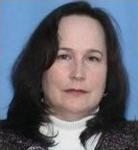 Mairead Walpole, author of A Love Out of Time:
Mairead Walpole, author of A Love Out of Time:
1. In some ways, writing is a form of therapy. Not from a "work out my issues" standpoint, but rather it allows me to escape from the day to day stresses of the world. I can let the creative, sometimes a little off-beat, imaginative part of my soul off the leash and let it run. Some of my very early writing did dip into the realm of "working out my issues" and those stories will never see the light of day!
2. Can I channel my inner Sallie Fields and run around saying, "They liked it, they really liked it..."? No? Darn. Seriously, I think it is the whole - I did this - aspect. Someone read the book and thought it was worth publishing. That is pretty cool no matter how you cut it.
3. Opening yourself up to criticism, being vulnerable. Sure, you know that not everyone is going to love your book, and intellectually you know that some people will hate it and think you are a hack, but when someone actually expresses that to you it is a whole new experience. It can be very humbling.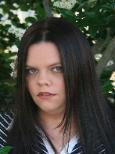 Suzette Vaughn, author of Badeaux Knights, Mortals, Gods, and a Muse, and Finding Madelyn:
Suzette Vaughn, author of Badeaux Knights, Mortals, Gods, and a Muse, and Finding Madelyn:
1. I'm like a humming bird on too much caffine. I write in waves. When the wave hits I can put out several thousand words in an unbelievably small amount of time. Then when I'm not in humming bird mode I edit.
2. The most thrilling is probably the fact that there are people out there that I don't know that have read my book and liked it. I had the pleasure a few times of meeting them and there is some twinkle in their eye that is amazing.
3. My son is always humbling. I recieved my proofs in the mail and my then seven year old son didn't fully understand what it meant that I'd written a book. He flips through the pages looking for hand-writting. "I get in trouble when I write in books." JJ Dare, author of False Positive and False World:
JJ Dare, author of False Positive and False World:
1. Writing is like being in a triathlon for me. I power write for days or weeks at a time, then crash for awhile with the help of Tylenol and chocolate. Writing is a scary, exciting roller-coaster. It is exhilarating and draining, and Iwouldn't do it any other way.
2. The most thrilling thing about getting published is the very act of being published! Something I wrote is out there, available for anyone to read. Holding the hard copy of my book in my hands gives me the good shivers. The other thrill is the pride in my family's voices when they introduce me as "The Writer."
3. The most humbling thing is feeling responsible for the places I take my readers. During the time they're walking with and living the lives of the characters in my book, my readers are taking the same roller-coaster ride I took to write the
book.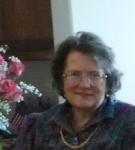 Pat Bertram, author of More Deaths Than One, A Spark of Heavenly Fire, and Daughter Am I:
Pat Bertram, author of More Deaths Than One, A Spark of Heavenly Fire, and Daughter Am I:
1. For me, writing is like the world’s longest crossword puzzle, one that takes a year to complete. I like playing with words, finding their rhythm, and getting them to behave the way I want. I like being able to take those words and create ideas, characters, and emotions.
2. Someday perhaps, I will find the thrill of being published, but to be honest it was anti-climatic. I am more thrilled at the thought of what the future might bring now that my books have been published.
3. I had no intention of answering these questions. After all, I was the one who collated all these mini interviews, but a fellow author said, "This is your party, too. People will tune in because of you. They want to know more about YOU. Don't cheat your fans and followers." Now that's humbling.
Click here to read the first chapters of all Second Wind novels: The Exciting Worlds of Second Wind Books
February 14, 2011
The First Terrible Anniversaries of Grief
 The first anniversaries, holidays, and special days after a loved one's death are difficult because we are so intensely aware that the person is no longer here to share in the joyous occasions. This is especially true if that person is a spouse, a life mate, a soul mate. Whatever traditions we developed together become obsolete when only one of us remains to carry on. The pain, the yearning to be together once more can be devastating on these days.
The first anniversaries, holidays, and special days after a loved one's death are difficult because we are so intensely aware that the person is no longer here to share in the joyous occasions. This is especially true if that person is a spouse, a life mate, a soul mate. Whatever traditions we developed together become obsolete when only one of us remains to carry on. The pain, the yearning to be together once more can be devastating on these days.
If those first anniversaries do not mark joyous occasions and celebrations but days of horror, the pain is oh, so much worse.
This has been a particularly difficult month for many who lost their mates because Valentine's Day is shoved down our throats. Wherever we go, we see images of happy couples. We remember we once were loved, once were part of a couple, and now we are not. Oddly enough, my upsurge in grief this month has nothing to do with Valentine's Day. We were not a romantic couple, did not see the point of following the crowd and celebrating a day just because someone once decided we should. We ignored the day, hence it has no baggage to bring me pain. In fact, today was a good day for me — I had lunch with a couple of friends from my grief group. We have graduated from the need for the group but still need the companionship of those who have experienced the same losses, so today we initiated our own little social group. There was no maudlin talk, just the normal pleasantries of friends sharing a meal.
Still, this has been a dreadful month for me, a month of painful anniversaries. A year ago last week, my life mate — my soul mate — bent down to pick up something off the floor and pain hit him so severely, it sent him to bed for the rest of his life. A year ago next week we got the diagnosis. At the beginning of March, when he saw a doctor for the last time, the oncologist told him he had three to six months to live. Two days after that, we signed up for hospice. Three weeks later, he died.
I hadn't thought of these days as anniversaries, so I did not steal myself for the onrush of grief. But grief has a schedule all its own, and it came for me. Again. How can his descent into these final stages of dying have begun a year ago? Those days seem so close that if my arms were long enough, I could reach behind me and touch him. Hug him. Keep him safe.
Today, thinking about his last weeks of unendurable pain, I feel self-indulgent for all my yearning to have him back. How could I ever subject him to that again? And yet, like a child, I weep for what I cannot have. I wonder what, in my youth or childhood, I did that was so terrible to deserve such punishment. I listen for the phone, hoping he'll call me and tell me he forgives me and I can come home.
Grief is irrational. It stems from a part of us that has no logic. I know I did nothing to send him away. I know he is never going to call me again. I know I am not being punished for some long ago transgression.
And yet the grief keeps pounding at me during this time of terrible anniversaries.
Tagged: anniversaries, death, first anniversaries, grief, grief group, loss, loss of a mate, upsurge in grief, Valentine's Day








February 9, 2011
Will Traditional Ways of Selling Books be Effective in the Ebook Era?
 I participated in a discussion with several authors the other night concerning ways of promoting our books. For once, I didn't say much, just sat back and listened to their suggestions for getting book reviews, getting the publishing company recognized by RWA and MWA, getting their books in stores. What struck me was that these were all traditional ways of promoting books. There was not a single mention of online promotion, of alternate means of promoting.
I participated in a discussion with several authors the other night concerning ways of promoting our books. For once, I didn't say much, just sat back and listened to their suggestions for getting book reviews, getting the publishing company recognized by RWA and MWA, getting their books in stores. What struck me was that these were all traditional ways of promoting books. There was not a single mention of online promotion, of alternate means of promoting.
I'm the first to admit that online promotion doesn't sell many books if you're an unknown, but to be honest, I never said that it did. For me, online promotion has always been about establishing an internet presence. What I know about marketing books can fit on the head of a pin and still leave room for a host of dancing angels, but I figured that once my books reached a certain critical mass of reviews, sales, and readers (fans?), momentum (via the linked nature of the internet) would cause sales to mushroom. Hasn't happened, but that's the theory, anyway.
On the other hand, do the traditional ways work? Or, more importantly, will the traditional ways of promotion continue to work as ebooks supplant print books? I never thought that would happen — too many of us prefer the comfort of a print book – but recently two bits of information made me rethink my bias. First, the day after Christmas, Barnes and Noble sold a million ebooks. Second, a recent poll found that college students don't read books. I'm not sure all those people filling up their ebook readers are actually going to read the books they download, but the fact is, ebooks are selling.
Does it matter that our books aren't in stores if people are going to buy ebooks? Does it matter that we don't have offline reviews if people will have to go online to buy the books? Does it matter that we don't have book signings if there are no print books to sign? Perhaps I'm looking too far ahead. Perhaps print books won't disappear until long after we're moldering in our graves, but the ebook era is approaching faster than we imagined. We need to find news ways of promoting to meet the challenge. Oddly enough, blog tours are already so prevalent as to be almost useless. But what's beyond book signings, reviews in magazines, bookstores? What's beyond blogging, Twittering, Facebooking? That's what we need to be considering.
Tagged: blogging, book signings, ebook readers, ebooks, future of books, future of publishing, new era in publishing, print books, promtion, social networking, traditional publishers








February 6, 2011
Searching for a Genre
 I had a book I wanted to write, so I wrote it, following the dictates of the story without regard to the conventions of genre. Now that book — Light Bringer — is close to publication, and I have a problem. How do I sell it?
I had a book I wanted to write, so I wrote it, following the dictates of the story without regard to the conventions of genre. Now that book — Light Bringer — is close to publication, and I have a problem. How do I sell it?
I received several rejection letters from publishers and editors over the years saying they liked Light Bringer, that the story was unique and well-written but they'd have to pass because they didn't know how to sell it. My reaction each time was, "What????" I mean, it's a book — you put it on the shelf in a bookstore and wait for people to buy it, right? Not quite.
Genre is how we classify books, but more than that, it's about reader expectations. For example, a thriller is a wild ride with a hero and a villain in mortal combat. Readers expect the story to be exciting, the conflict to involve high stakes, the suspense to be cutting. Generally, the story is told from both points of view — the hero and the villain. Light Bringer is suspenseful, does involve high stakes – the fate of the Earth — and it does have a villain and a hero, but (here is the crux of the matter) which character is the hero, and which is the villain? Besides, as those publishers and editors told me, the book has too many science fiction elements to be sold as a thriller. They also said it doesn't have enough science fiction elements to be sold as science fiction. Since they didn't know how to classify the book, they didn't know how to sell it.
Now that Light Bringer is about to be released by Second Wind Publishing, I need to figure out who will be most interested in reading the book. Readers are quick to penalize writers for failing to live up to genre conventions, and Light Bringer has no clear genre. It's too contemporary for science fiction, too outrageous for mainstream, too straightforward for a literary novel, too philosophical for action/adventure, too mythic for an historical, too mundane for fantasy, too scientific for magical realism, too western for urban fantasy, too . . . well, you get the point.
In truth, Light Bringer is more "myth fiction" than science fiction. Instead of basing the story on science (though there is much that is scientific in the book), I based it on myths: ancient myths, modern conspiracy myths, UFO myths, flood myths, historical myths, pyramid myths. The story is the culmination of a lifetime of research, and in following the research wherever it led, I ended up the premise of Light Bringer. Perhaps I discovered some long-hidden truth. Perhaps I created a separate truth. Perhaps I conjured a fantasy.
Whatever it is, Light Bringer deserves a chance. Suzanne Francis, author of The Heart of Hythea called it brilliant. Malcolm Campbell, author of The Sun Singer said "Light Bringer is TYPICAL BERTRAM: plots within plots, multiple characters with multiple agendas, fast moving, more than enough mystery and intrigue for everyone, satisfying conclusion. Great book."
So now comes the hard part — finding readers.
If you're interested in taking a peek at Light Bringer, you can find the beginning of the story here.
Tagged: genre, genre conventions, intrigue, Light Bringer, Malcolm Campbell, myth fiction, science fiction, Suzanne Francis, The Sun Singer, thriller, what genre is it








February 2, 2011
Advice to the Newly Bereft
 A couple of newly bereft joined the grief group I go to, and seeing how lost and bewildered they are showed me how far I have come these past months. I've reached a modicum of peace (though I still have moments of intense grief) and I don't feel quite so lost and bewildered.
A couple of newly bereft joined the grief group I go to, and seeing how lost and bewildered they are showed me how far I have come these past months. I've reached a modicum of peace (though I still have moments of intense grief) and I don't feel quite so lost and bewildered.
The Kubler-Ross formula for grief is so ingrained in all of us that we think those are the only stages of grief, but I have discovered dozens of phases more universal and potent than denial, guilt, anger, depression. Loss and bewilderment are two such phases. They are major components of grief, though I haven't found them listed anywhere as a stage the bereft have to deal with.
The worst problem of grief, of course, is that someone who was a vital part of our life is dead. The second worst problem is that we are flooded with so many emotions, topped off with excruciating pain, that it is almost impossible to sort everything out. All these emotions gridlock the brain's synapses, and we are left feeling lost and alone and totally bewildered. Where did our loved one go? How can he no longer be here? How can the world continue without his presence? How can I continue without his support and love? How can he be so very gone?
That "loss" everyone tells us they are sorry for is not our loved ones. Our loved ones are not lost, not misplaced; they are dead. We bereft are the ones who are lost. Whatever place we thought we had in the world is gone, perhaps forever. The world is different without our loved ones, and this is especially so if the dead we loved was a life partner, a soul mate. They'd become such a part of the fabric of our lives, of our very being, that when death rips them from us, we no longer recognize ourselves. We wander lost, bewildered, in this alien world. Some people manage to find themselves again, others become so changed they never find their way back.
I'd gone through the typical stages of grief before my life mate — my soul mate — died. I'd denied, raged, bargained, accepted, so that I thought I was "over" him, that after his death, my life would continue, sadder, but not much different. The depth of my grief, my loss, my pain, my bewilderment stunned me. I'd gone through all the stages of grief, so I should be okay, right? Wrong. Real grief begins where those so-called stages of grief leave off. Those stages of grief were first noted as the way people learned to accept their coming death, and they bear only a shadow of a resemblance to what those left behind experience.
My life mate and I used to talk about who had it worse — I though he had it worse because he was the one suffering. He thought I had it worse. It turns out he was right. His suffering is over, but mine will last the rest of my life. My grief will continue to change, to go through additional changes, will abate, might even be forgotten at times, but it is now a part of my life.
And he is not.
That is the crux of the issue, the cause of all that bewilderment, pain, and loss. How do you live with someone who is no longer there? How do you live without them? Here's how: you find comfort wherever you can, however you can. (Besides drink and recreational drugs, that is.) No matter what you do to get through the worst of your pain, no matter how crazy it is, be assured that others have done it, too. Hug the urn with his ashes, carry his identification, smell or cuddle or wear his clothes, talk to him, scream for him, cover the wall with his photos, write to him, write blogs about your grief. Do whatever it takes to get you through, because, as hard as it is to accept, you are still alive.
Tagged: comfort, dealing with grief, death, finding comfor, grief, how to get through grief, Kubler-ross, loss, loss of a sould mate, stages of grief








January 30, 2011
Free Ebook! No Strings (Or Pages) Attached
 Light Bringer
, my fourth novel will be released this spring. To make way room for my new book, Second Wind Publishing is clearing out the ebook inventory of my previous three novels by giving away a free copy to everyone who leaves a comment on this blog post. That's a joke, sort of — there is no such thing as ebook inventory clearance. Since ebooks exist only in the infinite reaches of cyber space, there is no inventory to clear. What is not a joke is that Second Wind is giving away free ebooks — that part is true.
Light Bringer
, my fourth novel will be released this spring. To make way room for my new book, Second Wind Publishing is clearing out the ebook inventory of my previous three novels by giving away a free copy to everyone who leaves a comment on this blog post. That's a joke, sort of — there is no such thing as ebook inventory clearance. Since ebooks exist only in the infinite reaches of cyber space, there is no inventory to clear. What is not a joke is that Second Wind is giving away free ebooks — that part is true.
All you have to do to receive a free ebook is to leave a comment mentioning which of my books you want to read. (Descriptions of all three are listed on the right sidebar.) We will send you a coupon code to use at Smashwords.com where you can download your free book in whatever format you choose.
So, which book do you want to read? More Deaths Than One? A Spark of Heavenly Fire? Daughter Am I? Now's your chance!
This offer expires on February 15, 2011.
Tagged: Daughter Am I, ebook inventory clearance, free ebooks, giveaway, Light Bringer, More Deaths Than One, Second Wind Publishing, smashwords











